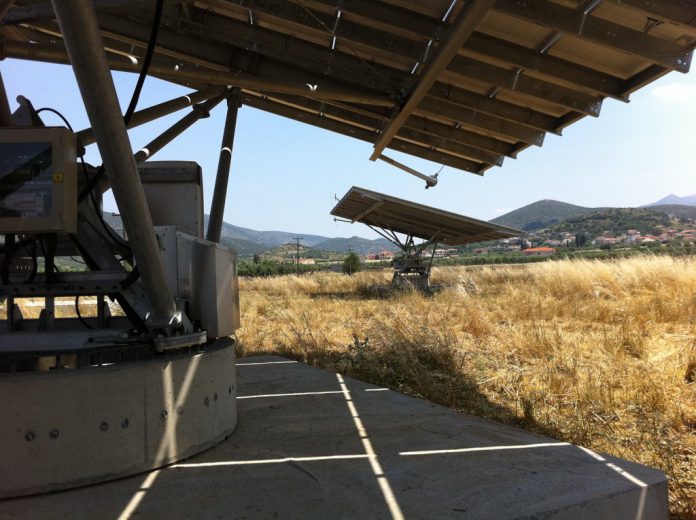Greece’s last renewable energy tender on Dec. 12 produced a rather astonishing result – at least, it was astonishing by Greek standards. Public Power Corp. (PPC), the country’s incumbent energy utility, offered the nation’s lowest bid for a solar PV park. The project will be built at the Kardia lignite mine in Kozani, northern Greece.
PPC’s 15 MW installation will be supported by a premium tariff of €0.05382/kWh, which is the lowest offer in both the PV and wind tender pots. The result is surprising, given that Greece’s largest energy company currently owns just 1.32 MW of PV assets, out of approximately 2.65 GW of PV capacity installed throughout the country.
PPC has attempted to win contracts in previous tenders, but it had thus far failed to do so. Following the election of a new government in July, the company’s newly appointed CEO has pledged to transform the utility into a modern European company, with an eye on renewable energy investment.
PV and wind
Apart from PPC’s plant, the first tender category – which covered solar PV facilities up to 20 MW each – led to 105.09 MW of new photovoltaic capacity spread across 27 plants. Italy’s Enel Green Power offered the second-lowest bid at €0.0586 for a 6.5 MW plant in Veroia, in the Central Macedonia belt of northern Greece.
Other winners include several widely-known local Greek companies. One of them, Spes Solaris-Solar Concept, won contracts for 14 solar plants, or about 50 MW of capacity, with tariffs ranging from €0.06087/kWh to €0.06197/kWh. Egnatia Energy, which is part of Greece’s Mytilineos Group, also won two contracts for two PV projects of about 1 MW each, at a tariff of €0.062/kWh.
The Greek regulator said that the tender led to an average tariff of €0.05998, which is 9.15% below the the tender’s ceiling price. But overall, the country’s latest auction exercise confirms once again the general rule that Greek tenders are undersubscribed. pv magazinehas reported before that this is due to a lack of licensed projects that are eligible to participate in the tender schemes. Potential auction participants need to own both a license to generate electricity and a license to connect their project to the grid.
The regulator had initially announced it would tender 287 MW of new solar capacity in December, only to award just 105.09 MW last week. Greece’s renewable energy sector is now waiting for the government to announce a new licensing regime, which will help the regulator to process the vast amount of applications it receives.
The tender’s second category concerned wind farms of up to 50 MW in size. In the end, the regulator awarded seven projects, or 224 MW of capacity in total, with tariffs ranging from €0.05577/kWh to €0.06194/kWh. The average tariff price for the wind energy pot is €0.05774/kWh, said the regulator, which is 15.4% lower than the ceiling price for this category.
New strategy
Meanwhile, the chief executive officer of the incumbent utility, George Stassis, presented the company’s new short-term strategy earlier this week. The new strategy builds upon Greece’s recent policy decision to phase out coal by 2028.
Stassis said PPC aims to install 1 GW of renewable capacity, while also entering the electric mobility sector. “PPC lost the renewable energy train and fights now to jump on it. I don’t want the same to happen in electric mobility,” Stassis said.
He therefore added that PPC will install 1,000 EV-charging stations across Greece in the next two to three years, while another 9,000 charging stations will be installed at a later date. PPC also wants its customers to install smart meters, with the Greek government vowing to sell additional chunks of the grid to foreign investors.
PPC’s move to modernize and become a competitive European company is a welcome development, but the Greek government also needs to modernize if the country hopes to achieve its new target of installing 5 GW of new solar PV in the next 10 years.
This week marked the first time that the Greek regulator did not publish the tender results on its website. Journalists and investors needed to email the regulator directly to ask for the press release on last week’s renewable energy auctions. This is hardly the way to move toward a green, efficient and transparent energy sector.






